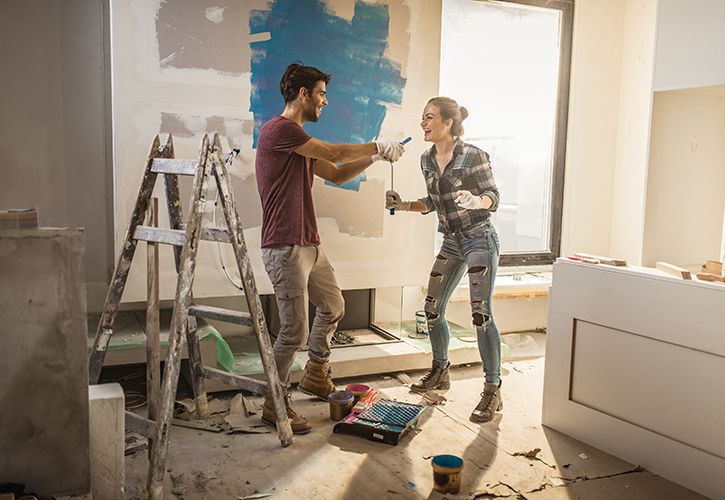UK DIY News
Brits Most Likely To Start, But Not Finish, Lockdown Projects

Brits have emerged as the most likely to roll their sleeves up and DIY in quarantine – but are least likely to finish projects, according to a new study out today.
The research, from retail innovation business Outform, canvassed more than 3,000 respondents across mainland Europe, the UK and US, and found Brits are the most likely to want to carry out a DIY project in 2021.
A quarter (26%) said they had done DIY projects in 2020 because they had more time available due to the pandemic, while almost as many (22%) said that spending more time working from home meant they’d noticed problems and issues that needed DIY to solve.
Findings also reveal that the most common home improvement projects undertaken in the UK during the quarantine were likely to be small but still significant, with more than half of DIYers (57%) citing painting or wallpapering a single room as examples. One in five (19%) bought painting or decorating gear for the first time ever in 2020.
Yet only half of us (52%) completed all the home improvement projects we started in the grip of the pandemic in 2020. And while three in 10 (29%) Brits are planning work in 2021, compared to 26% of US and French respondents, and 23% of Germans, DIY as a lockdown remedy is losing its lustre: only 13% of those who've done a home improvement project in the past 12 months say that they want to do another in 2021. This ranks jointly with the US as the countries least likely to want to do more DIY next year.
DIY frustrations include in-store accessibility, where the UK lags most - 41% of Brits say they find it difficult to find the products they need in-store, compared to 31% of French and German customers. Limited product ranges are also a bug bear for 49% of Brits.
Simon Hathaway, MD EMEA at Outform, said: “Our study shows Brits are the most likely to take a pragmatic view of DIY during the pandemic. What’s true for all those canvassed – Brits, French, Germans and Americans – is that people working from home had more time and saw problems they hadn’t spotted before, and they did something about it.
“It also suggests that home improvement brands and retailers are going to have to redouble their marketing efforts if they don’t want to be caught up in a potential wave of DIY fatigue in 2021. A significant number of us are going to continue to be home-based, not least because of Lockdown 3, so keeping them excited and engaged with the idea of making those homes better – investing in interactive technologies and joined-up, multichannel strategies will be essential to achieve this.”
Steve Collinge, DIY retail expert and MD at Insight Retail Group, added: “Lockdown has taught us that we can make very positive changes to our living spaces, quickly and relatively cost effectively. We have seen how decorating our rooms, improving storage or simply creating an organised workspace can have a positive impact on our mental health.
“This report indicates that whereas pre-COVID, the inclination for consumers was to decorate or update their living spaces every 6-7 years, home improvement is now becoming more of an on-going process, where we are continually searching for new ways to improve and update our homes and gardens.”
The research was undertaken in partnership with Relish. A total of 3,162 people were surveyed across the UK, US, Germany and France in December 2020.
Source : Outform
Insight DIY is the only source of market information that I need and they always have the latest news before anyone else.











































